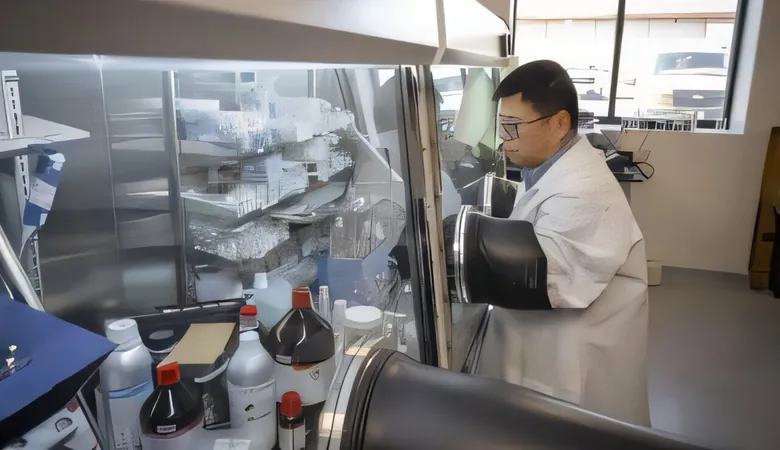
Revolutionizing Lithium Batteries: Researchers Unveil Groundbreaking Safety and Recycling Methods
2025-09-22
Author: Arjun
At Worcester Polytechnic Institute (WPI), a team of innovative battery technology researchers has made significant strides in addressing critical challenges in lithium battery development.
Safe Recycling of Lithium-Metal Batteries: A Game Changer
Under the guidance of Professor Yan Wang, the team has published findings in prestigious journals Joule and Materials Today. One of their most remarkable breakthroughs involves a safe and cost-effective technique for recycling reactive lithium-metal anodes. The researchers employed a groundbreaking 'self-driven' aldol condensation reaction using commercial acetone, successfully converting spent lithium-metal anodes into lithium carbonate (Li₂CO₃) with an impressive 99.79% purity—far exceeding industry benchmarks for battery-grade materials.
This recovered lithium carbonate can be repurposed to create new cathode materials, delivering electrochemical performance on par with existing commercial products. Wang emphasizes that this method not only minimizes reliance on mining but also reduces costs, paving the way for broader adoption of eco-friendly battery technologies.
Next-Generation Batteries: Simplifying Solid-State Design
In their second major publication, the WPI team tackled another significant hurdle: the compatibility issues between halide-based solid-state electrolytes and lithium-metal anodes. Traditionally, these challenges necessitated protective interlayers, complicating the design and driving up expenses.
The team introduced a novel approach by employing iron doping in lithium-indium chloride, resulting in a material that forms direct, stable contact with lithium-indium anodes—eliminating the need for a protective layer. This innovation led to remarkable outcomes: full cells showcased over 300 cycles while retaining 80% capacity, and symmetric cells operated for more than 500 hours, marking an unprecedented achievement in this domain.
Towards a Safer and Sustainable Energy Future
Wang declares that this advancement in iron doping simplifies the design of solid-state batteries while simultaneously enhancing their stability and performance. Coupled with their recycling efforts, these findings are pivotal in advancing towards a future characterized by powerful, safe, and sustainable lithium batteries.
By addressing both the beginning and end of the battery lifecycle—from safer designs to scalable recycling methods—WPI researchers are setting the stage for the next generation of electric vehicles, portable electronics, and renewable energy storage solutions.


 Brasil (PT)
Brasil (PT)
 Canada (EN)
Canada (EN)
 Chile (ES)
Chile (ES)
 Česko (CS)
Česko (CS)
 대한민국 (KO)
대한민국 (KO)
 España (ES)
España (ES)
 France (FR)
France (FR)
 Hong Kong (EN)
Hong Kong (EN)
 Italia (IT)
Italia (IT)
 日本 (JA)
日本 (JA)
 Magyarország (HU)
Magyarország (HU)
 Norge (NO)
Norge (NO)
 Polska (PL)
Polska (PL)
 Schweiz (DE)
Schweiz (DE)
 Singapore (EN)
Singapore (EN)
 Sverige (SV)
Sverige (SV)
 Suomi (FI)
Suomi (FI)
 Türkiye (TR)
Türkiye (TR)
 الإمارات العربية المتحدة (AR)
الإمارات العربية المتحدة (AR)